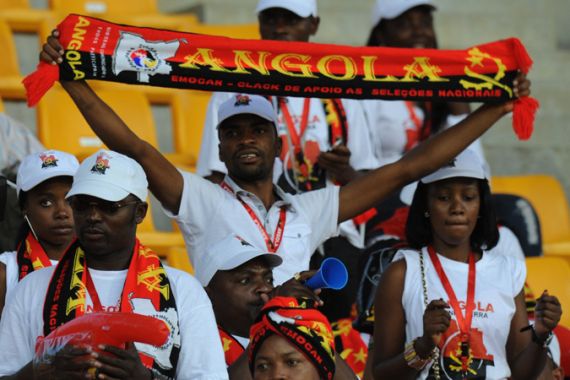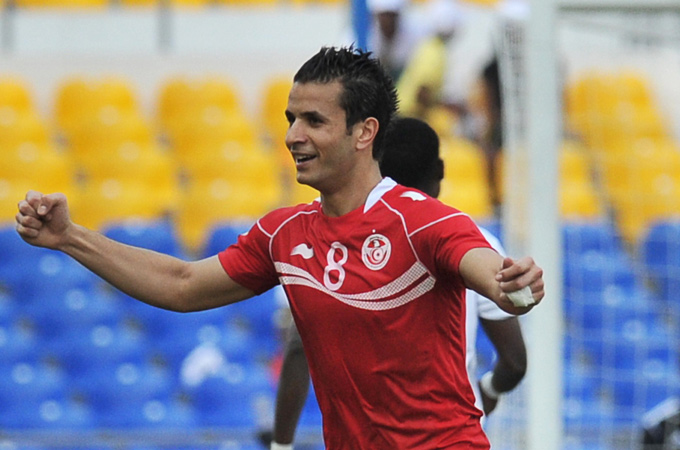Fans go it alone at Africa Cup of Nations
With high prices and basic travel arrangements in place, fans are a rare sight at Africa’s showpiece football tournament

 |
| Empty seats are no rare thing at this year’s tournament in Equatorial Guinea and Gabon [AFP] |
Staging a World Cup or European championship is a huge undertaking where host nations are expected to build state-of-the-art stadiums and provide hotels and transport for hundreds of thousands of visitors.
Preparations for the 2010 World Cup in South Africa and this year’s European championship in Poland and Ukraine were surrounded by doubts over whether the host nations could cope with the influx of visitors.
At the African Nations Cup, organisers have found a way of making things much easier for themselves: they ignore the fans altogether.
As in previous editions of the tournament, co-hosts Gabon and Equatorial Guinea have been expected to provide facilities only for the 16 participating teams and their officials. These boil down to four stadiums, a similar number of training grounds, a handful of hotels and charter flights to ferry the teams around.
In Malabo, the capital of Equatorial Guinea where Group B was played, accommodation for teams and officials has varied enormously.
Ivory Coast were placed in a luxury hotel with their own private beach and golf course, reached by a fully-lit, six-lane
highway, while Sudan were in a kitsch, three-star establishment with low ceilings and fake chandeliers, situated by a noisy roundabout.
The four teams shared two training grounds, one of them the old national stadium. It was a similar story elsewhere.
Local organisers chartered planes from Royal Air Maroc to transport teams and Confederation of African Football (CAF) officials between the venues of Malabo, Bata, Libreville and Franceville. Witnesses said that the Boeing 737 aircraft sometimes carried only a handful of people.
Everyone else was left to infrequent scheduled flights, which in the case of the Malabo to Libreville route were less
frequent than daily with some departing at three o’clock in the morning.
Mission impossible
CAF’s policy has in the last 15 years allowed it to take the Nations Cup to countries such as Burkina Faso, Mali, Ghana and Angola, which would not be able to cope with large numbers of visiting fans.
The downside is that, unless the host nation is playing, most matches are played in front of rows and rows of empty
seats, one of the most dispiriting sights in sport.
World Cup quarter-finalists Ghana found themselves playing Guinea before only 4,000 fans in Franceville, even fewer saw Ivory Coast beat Angola in Malabo and only a few hundred watched the Zambia-Sudan quarter-final in Bata.
The only visiting fans at the Nations Cup tend to be organised groups who are heavily subsidised by the government or
federation of their country. Varying from 50 fans for Burkina Faso to around 600 from oil-rich Angola, these supporters’ clubs include sizeable bands and are capable of bringing the emptiest of stadiums to life.
For independent fans, however, it is a near-hopeless task.
Low-cost airlines are a rarity in Africa and connections are often slow, complicated and painfully expensive. In any case, there is often no accommodation with hotel rooms almost impossible to find.
Visitors find their way barred by byzantine visa restrictions which host nations fail to lift even after being awarded the tournament.
Priced out
There were numerous cases of supporters and journalists who missed the present tournament and the 2010 competition in Angola because they were unable to get the magic stamp in their passport.
To add insult to injury, local fans are priced out of the games. The cheapest tickets for matches in Equatorial Guinea
were equivalent to a week’s income for most people.
Ruslan Obiang, chief executive of Equatorial Guinea’s local organising committee, blamed his team’s own success in reaching the quarter-finals for the low attendances at matches involving other teams.
“It was a little disappointing but I think it happened because of the success of our national team,” he said.
“I think that, because the national team has had positive results, people have preferred to save their money to follow the national team.
|
“There’s a limit to what we can do about it, Equatorial Guinea is not the biggest nation in terms of population but we could do better in the distribution of tickets” CAF secretary general Hicham El Amrani |
“If the team had fulfilled expectations, which would have been getting knocked out in the first round, I’m sure the matches with Ivory Coast, Burkina Faso and Senegal would have produced better attendances.”
CAF secretary general Hicham El Amrani recognised the problem although he had no specific answers as to how it could be dealt with.
“There’s a limit to what we can do about it, Equatorial Guinea is not the biggest nation in terms of population but we could do better in the distribution of tickets,” he said in an interview with the BBC.
“If their national team is not playing, it’s a challenge to fill the entire stadium, so that has been the reality for the African Nations Cup but that is something we are trying to keep improving.”
“We cannot just give away tickets, there has to be a minimum requirement,” he said.
“There’s nothing wrong with giving away tickets, it needs to be done in a structured manner; giving away tickets is not the issue.”
“There is a system of sales that needs to be followed and respected. This is the flagship tournament, we cannot just give away tickets.”